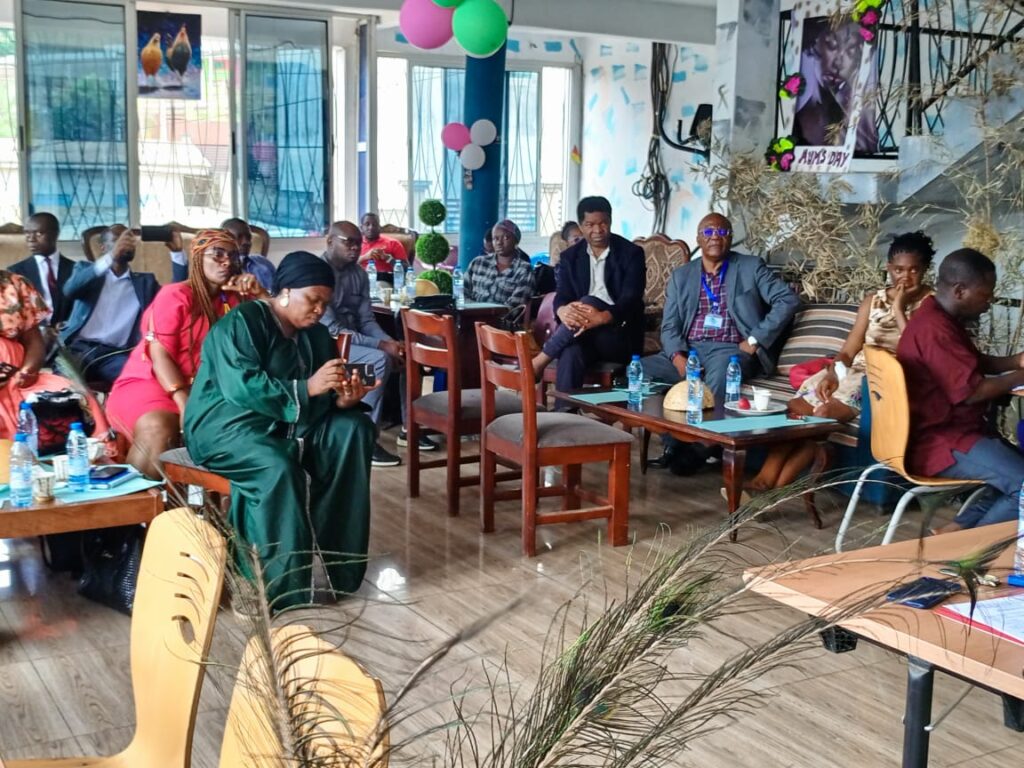By Leocadia Bongben
One of the key outcomes of Prof. Emmanuelle Ngwe’s book, “LA POPULATION DU CAMEROON: DU COMPTAGE DES EFFECTIFS A L’ANALYSE DES PHENOMENES DEMOGRAPHIQUES, is that by 2035, Cameroon will not be overpopulated. The book was launched on May 27 during a scientific event co-organized by Project d’Investissement en Capital Humain (PICHNET) and Journalist Network for Maputo Action Plan (JNMAP).
Justifying his stance that Cameroon is not overpopulated, Ngwe stated that the global density in Cameroon is 52.4 inhabitants per square kilometer, adding that by 2035, when the total population will be around 34 million inhabitants, the country will not become overpopulated. The annual global growth rate of the population has declined from 2.9% in the period 1976-1987 to 2.8% in the period 1987-2005, then to 2.6% in the period 2005-2010, he said.
Ngwe says the rate of growth has a multiplying effect on the social demand for basic and unsatisfactory services in agriculture, legislation, employment, housing, water, sanitation, environmental management, and social protection.
Despite the reduction of fertility attested by indicators revealed in 2018, it is 4.8 children per woman, which remains, for the Cameroonian context, high, with the insufficient supply of maternal and child health services. Mortality in children under the age of five is still high, though decreasing. And so is maternal mortality, which is also still high, at around 406 maternal deaths per 100,000 births.
Ngwe observed a rapid increase in the demand for basic social services in health, education, and social protection, among others. To stop the country’s demographic situation from becoming a constraint instead of an opportunity for development, the actors of development should be aware of the demographic challenges of socio-economic development and take into account the increased demographic variables in the elaboration, the actualization, and the follow-up and evaluation of policies, programs, strategies, and sectoral projects, Ngwe says.
Ngwe’s book looks at the universal tools of the science of demography, applying them to the Cameroonian context and updating how demographers think about the world based on the reality in general. The book takes stock of how things have changed over time in Cameroon and how the science of demography has changed over time. The question, in addition to conducting a new census, is whether the field of demography can be transformed to be relevant and useful.
Cameroon without a population census in 20 years—what consequences?
Among the worries of the press is the impact of not conducting a census in 20 years, going against the 10-year recommendation of the UN. To Ngwe, data from the last census is already old and no longer reflects reality. Data must be recent and reflect the reality of the moment; otherwise, it leads to poor planning. For the population, “If you plan basic social services, build schools, nurseries, and maternity hospitals, this will be in demand. This does not reflect the reality. The order proposed will already have been exceeded even before it starts to serve,” Ngwe states.
President Biya signed a decree on September 15, 2015, authorizing the 4th general census, but it should be noted that activities started, but there is a huge financial demand to conclude the census.

Prof. Gervais Beninguisse says the National Institute of Statistics, IFORD, participates in the census quality assurance-making processes, and the quality is respected according to international standards. We start with sensory cartography—a division of a national territory into entities assigned to each agency in the licensing. The innovation is the use of contemporary technology, such as tablets. The second innovation is geo-referential.
Why control birth if Cameroon is not overpopulated?
There have been international conferences on birth control, which is paradoxical. According to Prof. Ngwe, Cameroon follows the trend; however, he adds that the human rights approach is integrated. The Maputo Action Plan identifies reproductive health as a human right and a woman’s right, he adds.
Beninguisse adds that Cameroonian women have an additional child than they desire. He suggests family planning services need to do more, adding that the discourse is to respond to a desire, which is real, and EDS fertility is superior to desire. The population is declining, but it is important to take advantage of the reduction to impel development.


